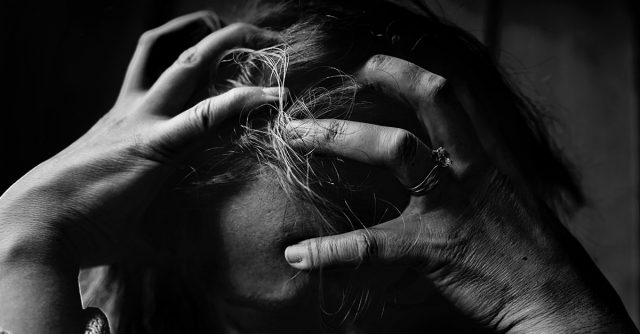For many of us, being in a relationship is a joyous experience. In a healthy relationship, you are given the opportunity to spend time with someone that you love, who also loves you. You look forward to seeing your partner every day. Being with them makes you feel secure, happy, and comforted.
Not all relationships go the way you want them to, however. Sometimes people can end up with someone who is emotionally abusive. Whether they’re a narcissist, a sociopath, or just a toxic person, they will torment you emotionally.
This sort of dynamic in a relationship can take a serious toll on your mental health. In fact, an emotionally abusive relationship can give you PTSD.
PTSD
Post-traumatic stress disorder, or PTSD, is a serious mental disorder that develops in people who have experienced traumatic events or abuse. It can disturb every aspect of someone’s life and completely change their behavior.
People who suffer from PTSD can experience mood swings, outbursts of anger, nightmares, flashbacks, physical pain, and many other terrible symptoms.
Abusive Relationships and PTSD
Millions of people around the world have been in emotionally or psychologically abusive relationships. These people will be constantly put-down by their partner and made to feel inadequate and guilty for their behavior and thoughts.
Once victims get away from their abusive partners, many of them have trouble adapting to life without their abuser. They will experience many negative emotional and physical symptoms of stress as well as intense fear. They’re likely to also have difficulty establishing new relationships and trusting other people.
Understanding Your Symptoms
For former victims of emotional abuse at the hands of their partner, it can often be difficult to comprehend why they feel how they do. They may feel guilty or weak for experiencing these symptoms. As well as this, they may also feel that they have no one to turn to for help as they have no one that they can trust.
Understanding why you’re experiencing symptoms associated with PTSD is the first step to recovery. It’s perfectly normal to feel the way that you do. Fear, guilt, apathy, all the emotions caused by PTSD do not make a person weak, it is simply something that has been enforced by years of abuse.
Seeking Help
Although it can be difficult to find someone that you trust once you’ve been the victim of emotional abuse, you can’t get through this alone. Reaching out to someone is an extremely brave and necessary step.
Finding someone to help you through this difficult time, be it a friend, family member, or professional therapist can help you to understand the root of your symptoms. Having someone to be there for you when you need it most will greatly help during your path to recovery.
Moving On
Even though you may not believe it now, you deserve recovery. You deserve to move on with your life and to lead it without flashbacks, mood swings, fear, or guilt. It is completely possible to go on to lead a happy, fulfilling life. You will learn to love yourself once again.
Many former victims of abuse have been able to completely get rid themselves of any of the horrible symptoms of PTSD. They have been able to form healthy, meaningful relationships and have learned to trust other people again.
Leaving an emotionally abusive relationship is extremely difficult. The PTSD that can follow you for years afterward is a horrible fate for anyone. It can be easy to lose hope but remember that you will recover and be able to lead a happy life.
If you’re experiencing PTSD caused by an abusive relationship, remember that you are worthy of a happy life. The road to recovery is tough but you are strong enough to make that journey and return to the person you once were.
If you have a friend or family member who is going through this, be there to support them through this difficult time. Share this article with them to help them take the first step to live their life without PTSD.


